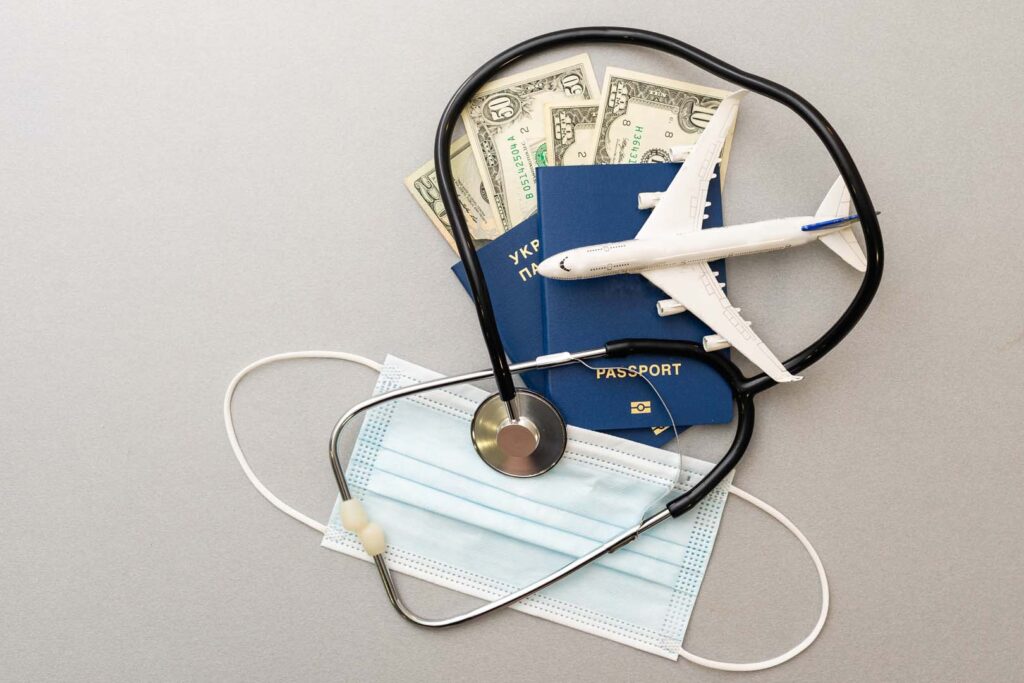
In recent years, medical tourism has become a growing phenomenon, with patients seeking healthcare abroad for a variety of reasons, including cost savings, specialized expertise, and shorter wait times. Among the popular destinations for medical tourism are Germany and Turkey, two countries known for their advanced healthcare systems and skilled medical professionals. While Germany is renowned for its high-quality healthcare and cutting-edge medical technology, Turkey offers more affordable treatment options without compromising the level of care. Together, they create a dynamic medical tourism relationship, where patients can benefit from the best of both worlds: top-tier healthcare expertise at a fraction of the cost.
The Appeal of Germany for Medical Tourists
Germany’s healthcare system is considered one of the best in the world, with a reputation for offering state-of-the-art medical treatments and highly skilled healthcare professionals. The country is known for its well-regulated healthcare industry, advanced medical technology, and exceptional standards of care. German hospitals and clinics often attract international patients seeking complex surgeries, cancer treatment, neurology care, organ transplants, and orthopedic procedures.
One of the key draws for medical tourists coming to Germany is the high level of expertise in specialized medical fields. For example, Germany is a leader in the fields of cardiology, oncology, and fertility treatments. Many German hospitals are equipped with the latest medical technology, including robotic surgery systems and advanced diagnostic equipment. The country’s rigorous training programs for doctors ensure that medical professionals are highly skilled, making it an attractive option for patients in need of specialized care.
However, the high quality of healthcare in Germany comes at a cost. Treatment prices in Germany can be quite expensive, particularly for elective surgeries and specialized procedures. As a result, many patients from countries with high healthcare costs, such as the United States and the United Kingdom, travel to Germany for advanced treatments, even though they often face steep medical bills. While the expertise and quality of care in Germany are undeniable, the cost can be a barrier for some patients.
The Appeal of Turkey: Affordable Care Without Compromise
In contrast, Turkey has become a popular destination for medical tourists seeking affordable healthcare options without sacrificing quality. The country offers a wide range of medical services, from cosmetic surgery and dental care to more complex treatments like organ transplants, fertility treatments, and orthopedic surgeries. Turkey’s medical tourism industry has grown significantly over the past decade, with cities like Istanbul, Ankara, and Antalya emerging as medical hubs attracting patients from around the world.
One of the main reasons patients choose Turkey for medical treatment is cost savings. The price of medical procedures in Turkey is typically much lower than in countries like Germany or the United States. For example, cosmetic surgeries, dental implants, and hair transplants in Turkey can cost as much as 50-70% less than in Western countries, without compromising on the quality of care. This makes Turkey particularly attractive to patients from Europe, the Middle East, and even North America.
Despite the lower costs, Turkey boasts a high standard of healthcare, with many hospitals and clinics offering internationally accredited services. Many medical professionals in Turkey are trained in Europe or the United States, and hospitals often use the latest medical technologies. Additionally, many healthcare providers in Turkey offer bilingual services, ensuring that international patients can easily communicate with their doctors and medical staff.
The Medical Tourism Relationship Between Germany and Turkey
The medical tourism relationship between Germany and Turkey is mutually beneficial. German patients seeking more affordable treatments without sacrificing quality often choose Turkey as a destination for procedures that are more budget-friendly, such as dental implants, aesthetic surgeries, and bariatric treatments. Turkish hospitals and clinics, known for their high standards of care, offer these procedures at a fraction of the cost, attracting German patients looking to save money.
On the other hand, Turkish patients who require specialized care or advanced treatments may travel to Germany for procedures that are not readily available or affordable in Turkey. Germany’s reputation for excellence in specialized fields such as oncology, cardiology, and neurology makes it a top destination for Turkish patients seeking cutting-edge treatments or second opinions.
The close proximity of Germany and Turkey further facilitates this medical exchange, with frequent flights and well-established connections between the two countries. For Turkish patients, Germany’s healthcare system is often seen as a benchmark for quality, while Germans seeking care in Turkey are reassured by the country’s growing reputation for world-class healthcare at a fraction of the cost.
Conclusion
Medical tourism between Germany and Turkey is a testament to the globalized nature of healthcare, where patients are no longer limited by national borders in their search for quality and affordable care. Germany, with its advanced medical technology and high expertise, remains a destination for complex procedures, while Turkey offers cost-effective alternatives without compromising on the quality of treatment. Together, these two countries create a unique healthcare dynamic that benefits patients from around the world, offering access to specialized treatments, world-class care, and affordability. This growing medical tourism relationship highlights the importance of international collaboration in the healthcare industry and the ability for patients to access the best care, regardless of geographical boundaries.